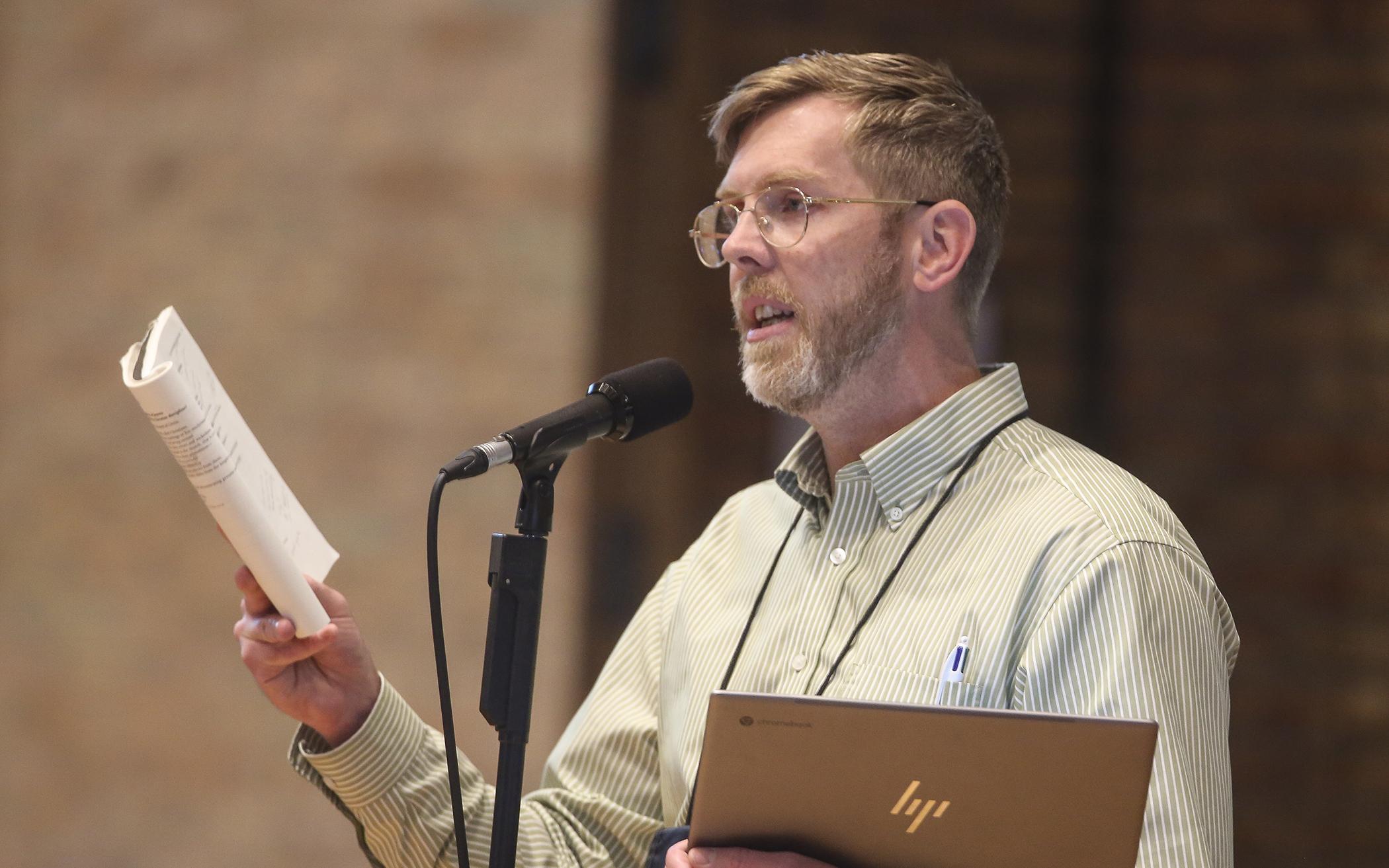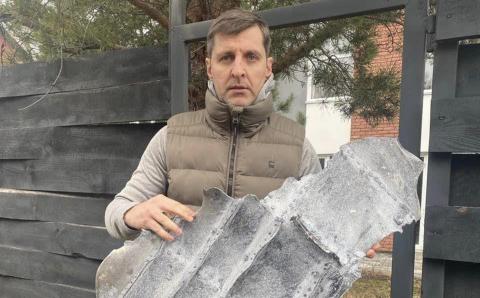Synod 2024 has asked for repentance from churches acting contrary to Christian Reformed teachings and decided that at the conclusion of this synod “all office-bearers from churches in non-compliance … be placed on a limited suspension.”
Considering several requests about administering discipline for churches contradicting decisions of recent synods, Synod 2024 voted on several actions all at once, accepting the majority opinion of the advisory committee that took up the matter in a 134-50 vote.
Synod is the annual general assembly of the Christian Reformed Church in North America. It is meeting June 14-20 in Grand Rapids, Mich.
The adopted instructions relate to “churches who have made public statements, by their actions or in any form of media, which directly contradict synod’s decision on unchastity.” Synod didn’t name any churches specifically, but some speakers from the floor identified themselves or congregations as ones that would be affected.
Synod 2022 upheld the CRC’s traditional stance that homosexual sex is not consistent with biblical teaching and affirmed that the Heidelberg Catechism’s definition of unchastity includes homosexual sex. It declared that this interpretation has confessional status.
Synod 2024’s committee considering the question of admonishing “non-compliant churches,” presented majority and minority reports, with slight differences in their suggestions of how the suspension of officebearers would operate and in wording. The majority favored language of repentance and the minority favored language of restoration, though both reports referenced 1 John 1:9-10 and Gal 6:1 and expressed desire for churches to be restored, just with different emphasis. Minority report: “Our desire is for restoration and reconciliation.” Majority report: “Our desire is for the restoration of non-compliant churches under the truth of God’s Word and our shared confession.” Under synod’s rules a majority report has priority unless the body tables it in favor of the minority report. That didn’t happen.
Synod 2024 instructed the affected churches “to repent and to honor their covenant commitments to the CRCNA.” The repentance would be demonstrated by action, synod said, including to publicly declare repentance to the classis and retract all public statements and instructional materials that contradict CRCNA teachings on chastity. They must commit to abstain from ordaining individuals in same-sex marriages or relationships inconsistent with traditional Christian sexual ethics.
Additionally, officebearers must not advocate against the CRCNA's stance in their preaching, teaching, writing, service, or personal lives. They must pledge to not recognize same-sex marriages ecclesiastically, including in officiating or blessing wedding or baptismal rites, and ensure that officebearers refrain from serving in organizations that specifically advocate against CRCNA teachings and confessions. Responding to a question from the floor about what kinds of organizations, Lora Copley, reporter for the majority report, said “We had identified organizations like All One Body or Hesed.” She added, “There’s a question mark about Better Together.”
Officebearers facing limited suspension post-synod will lose the ability to be delegated to CRCNA assemblies, synod said. The General Secretary office was tasked to develop resources by Nov. 29, 2024, aiding classes and churches in either repentance and restoration or in a disaffiliation process if they don’t demonstrate “continued momentum towards repentance and restoration.”
Zachary King, general secretary of the CRCNA, asked the assembly to “calibrate expectations from the office of general secretary.” He said that resources do exist and “we will try to leverage the resources we have.” He asked, “for your grace as we try to communicate.”
Churches can continue in the restoration process if there is progress towards repentance or disaffiliation, monitored through specific benchmarks. This process aims to conclude within one year and “may not exceed two years.”
“If a church refuses to engage the process, from moving forward in a timely manner,” the classis may initiate disciplinary action, synod said. Failure to achieve restoration or disaffiliation within the suspension period might lead to the removal of the council, placing the church under a neighboring council's authority.
Greg Harnden, Classis Quinte, was in favor of making these moves because “we need a clear path of discipline.” He said, “The fear, I sense, is that some churches may leave rather than submit to discipline,” adding, “I don’t want to see anyone leave, but as Abraham was asked to offer up Isaac in obedience to faith, I see this as an act of obedience to faith.” He said his desire is that “our churches would repent and be restored.”
Dave Bosscher, Classis Thornapple Valley, was also in favor and said, “Every year we spend discussing this, there are things we aren’t discussing.” He shared about the challenges of dealing with pastoral care situations. “As long as we are talking here about basic principles, we are not moving on to how to provide proper loving care in light of what we believe in Scripture.”
Despite all the recommendations passing, not everyone agreed with them. “I think we need to show grace and allow time for the churches to come into alignment with our confessions,” said Philip Fritschle, Classis Arizona. Ken Douma, Classis Alberta North, was also against the majority report because “this isn’t just a theological conversation … this is about our brothers and sisters who we love.” He said he would “err on the side of grace.”
Ryan Schreiber, Classis Grand Rapids East, said, “As a person who is going to be disfellowshipped … I need to hear about the implications for my classis.” Derek Buikema, president of Synod 2024, said, “This depends on the rules of procedure for each individual classis, so it’s not something synod can adjudicate.” He added, “It’s something that classes will need to figure out.”
Sixteen votes against the report’s recommendations were recorded and read by synod’s clerks.
Synod 2024 is meeting June 14-20 at Calvin University in Grand Rapids, Mich. Find daily coverage from The Banner news team at thebanner.org/synod. Visit crcna.org/synod for the synod schedule, webcast, recordings, photos, committee reports, and liveblog. Synod is the annual general assembly of the Christian Reformed Church.
About the Author
Kristen Parker is a freelance writer. She has a passion for words and creativity. Kristen and her husband Chris, enjoy board games and thrift shopping. They attend Stratford CRC in Stratford, Ont.









